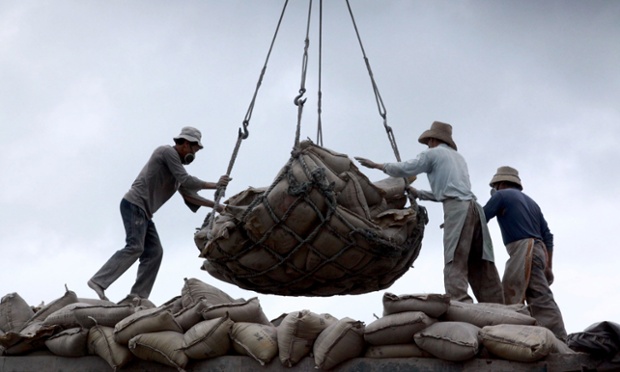
(Photo from Army Spokesman Facebook Page)
Emirati construction company Arabtec, assigned to build 1m residential units in Egypt, does not agree with the project’s conclusion, said head of the Armed Forces Engineering Corps General Kamel El-Wazir.
“Our conditions were that any investor who wants to enter the Egyptian market has to bring his money from abroad, not from Egyptian banks,” El-Wazir explained in an interview with privately-owned Al-Masry Al-Youm newspaper, published on Sunday.
Following up on the project shifted to the Ministry of Housing, instead of being directly supervised by the armed forces.
In March 2014, the armed forces, in cooperation with Arabtec, announced plans to construct 1m residential units for low-income youth on land provided by the armed forces. The contract marks one of the largest construction initiatives in the Arab region in the past three years.
The project, announced by President Abdel Fattah Al-Sisi, then the defence minister, falls under the umbrella of the “For Egyptian Youth” initiative. The initiative, which Al-Sisi launched prior to announcing his presidential campaign, aims to address a shortage of low-income housing for young people.
The project will be implemented in four stages over the next five years. The $40bn project will be built at 13 locations across Egypt, with the first homes to be delivered in early 2017.
In January 2015, UAE Minister of State Sultan Al-Jaber told Al-Sisi, during the latter’s visit to the UAE, that Arabtec’s project will commence with 120,000 units next month.
The project will be located in 18 governorates across Egypt, including Cairo, Ismailia, Sharqeya, Daqahleya, Menufiya, Kafr Al-Sheikh, Gharbeya, Beheira, Fayoum, Assiut, Sohag, Qena, Luxor, Aswan, Red Sea, New Valley, and Matruh.
The Ministry of Housing will establish all the bases for the project, and every unit will have a solar heater to save electricity, as well as digital electricity and water metres that operate on prepaid cards.
Arabtec will provide the New Urban Communities Authority (NUCA) with the housing units and public services. The ownership of the project will then transfer to the concerned authorities upon completion.
NUCA has selected El Obour City, Badr City, and New Minya City for Phase One of the project. In this phase, 420,000 housing units will be built, while New Assiut City will be the alternative for Phase One. These cities were chosen due to their large industrial areas and the job opportunities they provide. Employment opportunities will be available for those living in these cities, with the first housing units to be delivered in early 2017.



